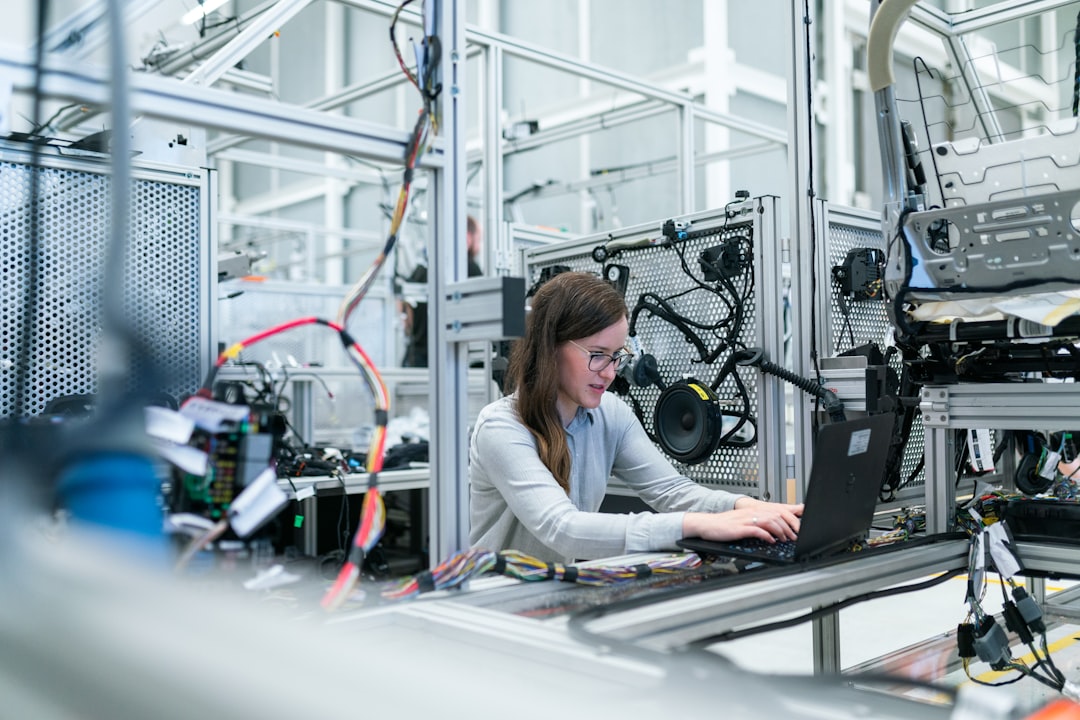Unlock encrypted content
Please enter your SSCE key to initiate on-the-fly decryption.
Decryption key: (Click cancel if you don't have the key)
Copied link to clipboard.
This feature is unavailable for free accounts. Upgrade now and enjoy all Premium benefits.
Go Premium!
This feature is unavailable for free accounts. Upgrade now and enjoy all Premium benefits.
Go Premium!
Please open this page in browser ( Google Chrome or Safari ) to use this feature.
Open In Browser
Efficient Data Storage: Cybernetics, Nanotechnology, and Genetic Algorithms.
Random related video for this blog.
Copied share link to clipboard.
In today's digital age, data storage is a crucial aspect of everyday life. From personal photos and videos to business documents and financial records, the need for efficient and secure data storage has never been greater. In recent years, advancements in technology have led to the development of several innovative data storage solutions, including cybernetics, nanotechnology, and genetic algorithms. In this article, we will explore each of these technologies and their potential impact on data storage.
Cybernetics
Cybernetics is the study of communication and control in machines and living organisms. In the context of data storage, cybernetics is used to create systems that can learn and adapt to changing conditions. These systems are designed to be self-regulating, allowing them to optimize their performance and efficiency over time. One example of cybernetic data storage is neural networks, which are modeled after the human brain. Neural networks can learn from experience and adjust their behavior based on feedback, making them ideal for tasks such as image and speech recognition.
Another example of cybernetic data storage is machine learning, which is a subset of artificial intelligence (AI). Machine learning algorithms can analyze large datasets and identify patterns and trends that would be difficult or impossible for humans to detect. This technology is already being used in a variety of industries, including healthcare, finance, and marketing. For example, machine learning algorithms can be used to analyze medical images and detect early signs of cancer.
Nanotechnology
Nanotechnology is the science of manipulating matter on a molecular scale. In the context of data storage, nanotechnology is used to create devices that can store vast amounts of data in a tiny space. One example of nanotechnology-based data storage is the use of nanowires, which are tiny wires made of materials such as silicon or copper. Nanowires can be used to create memory cells that are much smaller and more energy-efficient than traditional memory cells.
Another example of nanotechnology-based data storage is the use of DNA as a storage medium. DNA is a highly stable and compact molecule that can store vast amounts of information. Researchers have already demonstrated the ability to store data on DNA strands, and this technology has the potential to revolutionize data storage in the future.
Genetic Algorithms
Genetic algorithms are a type of optimization algorithm that is inspired by the process of natural selection. In the context of data storage, genetic algorithms can be used to optimize data replication and distribution. For example, genetic algorithms can be used to determine the most efficient way to distribute data across a network of servers, reducing the risk of data loss or corruption.
Another example of genetic algorithm-based data storage is the use of genetic engineering to create more efficient data storage devices. Researchers are exploring the use of DNA and other biological materials as a basis for new types of data storage devices. By using genetic engineering techniques, researchers can create devices that are specifically designed to store and process data, leading to more efficient and reliable data storage solutions.
In conclusion, cybernetics, nanotechnology, and genetic algorithms are three innovative technologies that have the potential to revolutionize data storage. Each of these technologies offers unique benefits and challenges, and researchers are exploring new ways to combine them to create even more powerful data storage solutions. As the demand for data storage continues to grow, it is clear that these technologies will play a crucial role in shaping the future of data storage.
If you're looking for a reliable and secure cloud storage solution, FileLu is the answer. With premium plans starting at just $2.50 per month and free plans offering up to 250 GB of storage, FileLu is the perfect choice for individuals and businesses of all sizes. With features such as large file transfer capabilities and encryption file sharing, FileLu is the ideal solution for all your data storage needs. Visit https://filelu.com today to learn more.
By Amelia Isabella.
Email: [email protected]
Related
Unmanned Aerial Vehicle (UAV) Data Synchronization and Cloud-Based Backup: Advancing...
July 3, 2023
Read More
Intuitive File Collaboration Interfaces: Enhancing Productivity and Efficiency
July 8, 2023
Read More
Autonomous Driving, Neurotechnology, and 3D Printing: Advancements in Data Storage...
June 21, 2023
Read More
<h1>Remote Access and Secure Data Collaboration: Exploring the Benefits of...
July 4, 2023
Read More
Cloud Storage: Streamlined File Sharing Workflows, Real-time Collaboration, and Advanced...
June 1, 2023
Read More
Popular
Effective Project Management Software for Remote Work: Ensuring Data Security...
May 11, 2025
Read More
Exploring the Future of File Sharing: Augmented Humans, Cryptocurrency, and...
May 14, 2025
Read More
Latest
Exploring the Future of File Sharing: Augmented Humans, Cryptocurrency, and...
May 14, 2025
Read More
Effective Project Management Software for Remote Work: Ensuring Data Security...
May 11, 2025
Read More
Innovative File Collaboration and Secure Cloud Storage Solutions for Modern...
April 27, 2025
Read More
The Future of Technology: Automation, Cybersecurity, and Collaborative Innovations in...
April 20, 2025
Read More
The Future of Technology: Exploring AI, Biotechnology, and Revolutionary Data...
April 9, 2025
Read More
The Future of Data Management: Exploring Cloud Storage, Voice Assistants,...
April 6, 2025
Read More
The Future of Technology: Exploring Emerging Innovations and Their Impact...
March 30, 2025
Read More
The Future of File Management: Exploring User-Friendly Technologies and Their...
March 26, 2025
Read More



























